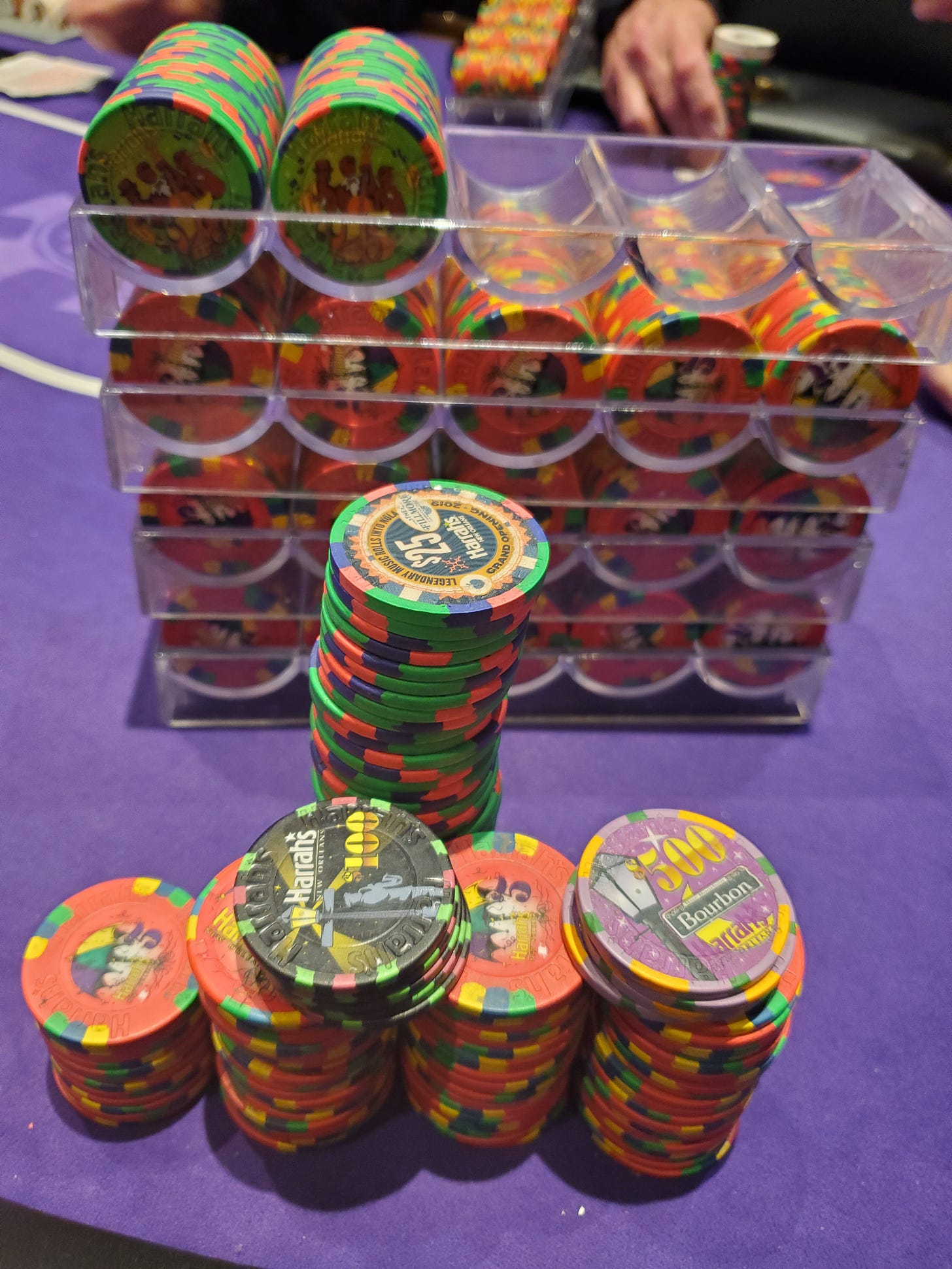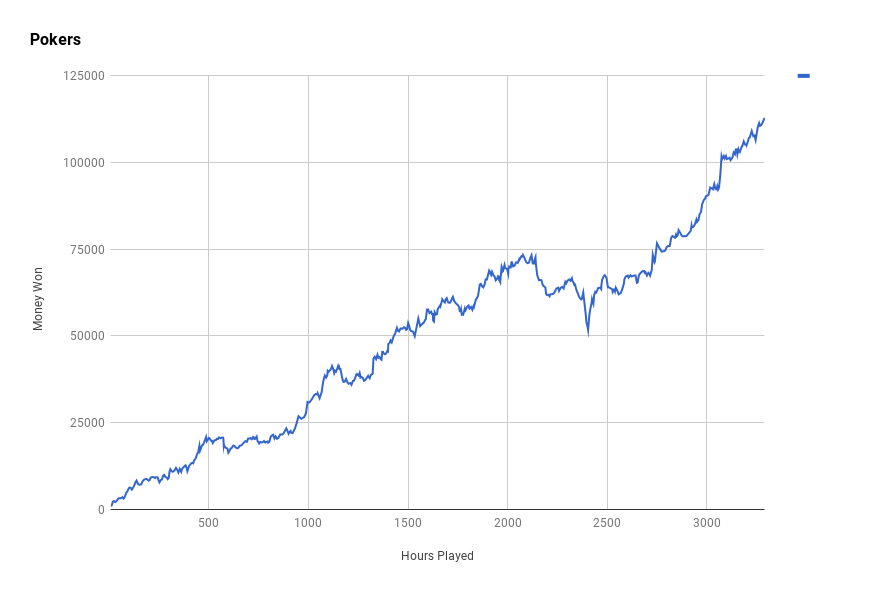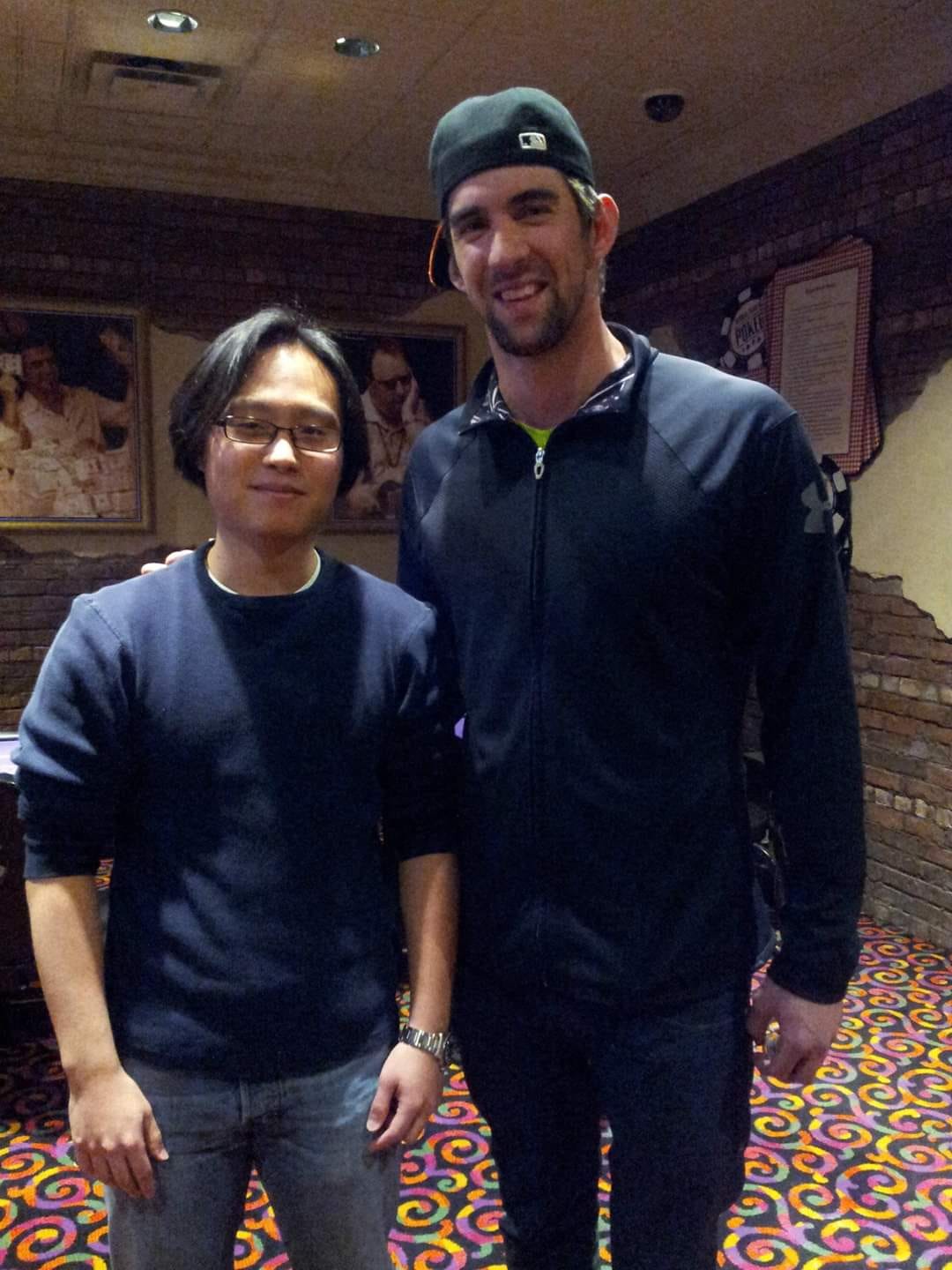I set my own hours, had unlimited vacation and could live (almost) anywhere by 23
What success looked like in my twenties playing a game for money
I got into poker in middle school as Chris Moneymaker’s 2003 WSOP Main Event win launched an era. The neighborhood kids played for small amounts of money - $5 to play was normal and $20 was considered to be a large buy-in. The first few times I played I didn’t even know the rules or hand rankings. I knew that five numbers in a row was a straight and 5 of the same suit was a flush but I had no idea if a straight beat a flush (it doesn’t). I was involved in a pot where I had trips while everyone had already shown their hand but because I didn’t know if I had the winning hand or not, I sat there until the pot was dragged to me. That first win must’ve lit something in me because I had immediately become obsessed with the game wanting to play it all the time.
I distinctly remember losing a total of $180 over the course of a few months playing in $5 increments which reflected a huge accumulated loss. It was at this moment that I became obsessed with learning about strategic ways to play poker. Some of the kids were reading books on poker and I took it to an extreme - I rode my bike to Borders (Barnes & Noble?) every day after school where they had a bookshelf dedicated to poker. This was where I learned about legends of the game like Doyle Brunson, different poker games that are less widely played today such as 7-card stud, different formats of the game (tournament vs. cash, limit/no-limit/pot-limit) as well as actual strategy.
Fast forward a number of years, I was a Resident Advisor in college and spent days inside another school’s gymnasium during Hurricane Gustav after evacuating. With nothing better to do I fired up a bunch of 10NL tables (a Texas Hold’em game where the blinds were 5 cent & 10 cents with a max buy-in of $10) and played for hours every day. Over that evacuation period where sleeping on a mattress was a one-time privilege, I earned just a hair under $7 an hour sitting on a chair with my laptop.
I joined Twoplustwo (a poker resource, magazine & online forum) and became an avid user racking up thousands of posts reading through every thread in the strategy section. As I was going up in stakes at 200NL, the infamous day arrived. I could no longer play poker for real money on-line beginning April 15 2011, AKA Black Friday. Most fortunately I turned 21 in less than a month after that date and immediately visited the casino with the money I had saved up until that point which was about $4-5,000. I quickly realized that while the rate at which hands are dealt online is significantly higher (a regular online table typically dealt 60-100 hands an hour with the option to play multiple tables simultaneously while even a fast dealer may only deal about 30 hands an hour) the competition in-person was significantly easier while playing for more money.
At the age of 21 I made ~$35 an hour playing 1-3 NL the lowest no-limit stake offered at a casino. By 23 I was making ~$55/hr which afforded me a level of freedom that I absolutely love. I worked flexible hours and didn’t have to work a standard schedule of 9-5 Monday – Friday (though I almost always worked Friday & Saturday nights as they were the best times to play), take as many breaks or vacation as I wanted, travel whenever/wherever and live almost anywhere.
Some of my tracked results circa 2011 - 2013
I also got to meet all sorts of people like Michael Phelps who I would’ve never met otherwise:
I used to have long hair OK
Why I quit: while my hourly increased over time as I became better at the game as well as playing at higher stakes, I was never able to make it to high-stakes - the level at which I would feel comfortable doing it as a profession. I reached a breaking point where the game was no longer fun for me and lost the drive to continue studying and break through.
Furthermore, the hourly figure represents the accumulated total wins divided by total number of hours played. It is not a neat, even amount earned every hour. From personal experience, I won in 65-70% of the sessions I’ve played and there are many large swings in both wins and losses. Having losing sessions is a very normal & regular occurrence but quite an odd experience. Imagine spending hours (sometimes 12+) at work only for you to come out with less money than you began the day with. Even more problematic is that playing poker for extended periods eventually leads to large sustained losses over weeks/months or even longer regardless of a player’s skill known as downswings. These are crushing if not outright devastating not only financially but often mentally as well to even professional players.




